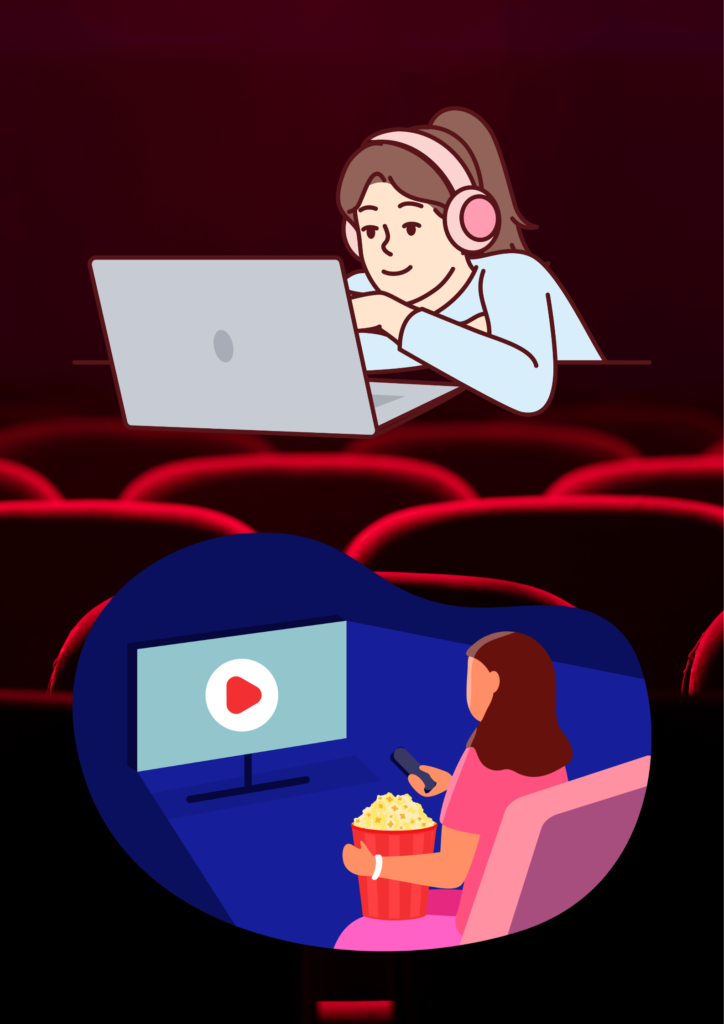The Double-Edged Screen: A nuanced look at how TV shows and movies shape young minds

The flickering light of a television or the glow of a mobile device screen isn’t merely a source of entertainment for young people; it’s a gateway to a universe of stories, characters, and ideas that leave an indelible mark on their developing minds. These narratives influence a young person on multiple levels, shaping their self-perception, fostering empathy, and introducing them to the complexities of the world around them.
Navigating the Mirror: Self-Image in the Age of Screens
Adolescence is a crucial time of self-discovery, and the characters young people encounter on screen can become influential role models. Witnessing characters overcome challenges or embody admirable traits can inspire them to pursue similar paths in their own lives. However, the media landscape is often saturated with unrealistic portrayals of beauty standards and idealized lifestyles. These unrealistic depictions can cultivate feelings of inadequacy and social pressure in young viewers. It’s critical, therefore, to equip them with critical thinking skills to navigate these contrasting messages and cultivate a healthy self-image that isn’t solely defined by what they see on screen.
Walking in Another’s Shoes: Building Empathy Through Stories
Stories have the inherent power to transport viewers beyond their immediate experiences. By encountering diverse characters and situations on screen, young people can develop empathy and understanding for those unlike themselves. Shows and movies that tackle social issues or explore the complexities of human emotions can spark crucial conversations and encourage critical thinking about the world around them. These narratives can foster a sense of connection and challenge existing biases, allowing young viewers to see the world through a new lens.
However, it’s important to be mindful of the potential pitfalls of limited portrayals and stereotypes. Unchallenged biases on screen can solidify existing prejudices in young minds. Open discussions about the media they consume are essential, allowing young viewers to develop a nuanced understanding of the narratives they encounter and fostering a more critical lens through which to view media portrayals.
Learning Through the Lens: Relationships and Values on Screen
TV shows and movies offer a window into various relationships, showcasing friendships, family dynamics, and romantic entanglements. Young viewers observe how characters navigate conflict, express love, and deal with loss. These portrayals can inform their understanding of healthy relationships and boundaries. However, the dramatized nature of on-screen relationships can create unrealistic expectations. Parents and caregivers can play a crucial role in helping young people distinguish between the idealized scenarios depicted in media and the complexities of real-life relationships. By fostering open communication, adults can guide young viewers in developing healthy relationship skills and identifying unrealistic portrayals.
Fueling Curiosity and Imagination: The Power of Inspiration
Shows and movies can ignite a young person’s imagination, transporting them to fantastical worlds or sparking a curiosity about new ideas. Educational programs can foster a love of learning, while documentaries can introduce them to diverse cultures and historical events. These narratives can inspire creativity, broaden their horizons, and cultivate a lifelong love of learning. However, it’s important to strike a balance. Excessive screen time can crowd out other crucial developmental activities like play and real-world interaction. Finding a healthy balance between media consumption and other activities is essential for fostering a young person’s overall growth.
In conclusion, the impact of TV shows and movies on young people is undeniable. These captivating narratives have the power to shape self-image, build empathy, and introduce them to complex ideas. By fostering critical thinking skills and open communication, parents and caregivers can empower young viewers to navigate the vast media landscape and ensure it plays a positive role in their development.




















